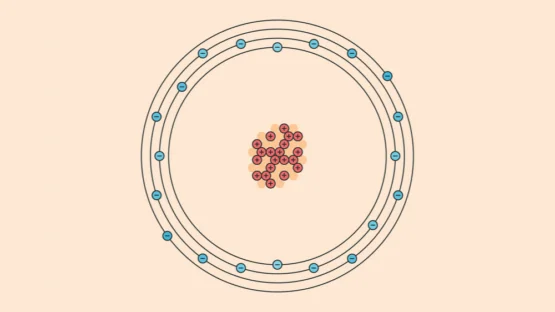Scientists have reported in Nature Aging that impaired mitochondrial uptake of calcium ions leads to changes in inflammatory responses that resemble what happens in aging [1].
Inflammation and aging
Inflammation is an essential, evolutionarily conserved process and a fundamental part of the immune response, providing immediate defense against infections by pathogens such as bacteria, viruses, fungi, and parasites. It also plays a role in tissue repair and wound healing.
However, if not properly regulated, inflammation can be harmful. Extreme cases of inflammation can spiral out of control, which occurs in allergic reactions, autoimmune disorders, and the cytokine storms that accompany acute conditions such as COVID-19.
Another type of harmful inflammation is inflammaging, the gradual inflammation that steadily increases with age. Inflammaging is ‘sterile’, as it is not caused by any pathogen. It is also a hallmark of aging and has been implicated in multiple age-related conditions. There is a growing appreciation of the crucial role of inflammation in aging [2].
Inflammaging may be ubiquitous, but its mechanisms are not properly understood. Only certain aspects of it are well-documented at the biological level. For example, senescent cells, which become more abundant with age, secrete harmful inflammatory factors [3], and gut permeability, which also increases with age, drives inflammation by letting pathogens into the bloodstream [4]. However, the picture is far from full.
A fundamental mechanism?
In this new study, the researchers report a surprising discovery of what might be a fundamental mechanism behind age-related changes in inflammation patterns.
The aging processes are highly interconnected. Since both inflammaging and mitochondrial dysfunction are hallmarks of aging, these researchers were curious to know about the relationship between them.
Therefore, they analyzed the transcriptome of whole blood samples taken from donors of different ages as a “reasonable surrogate of combined gene expression” in white blood cells, which are a central component of the immune system. They noted an age-related downregulation of the mitochondrial genes associated with calcium signaling, which facilitates the immune system’s early response to triggers. Specifically, mitochondrial calcium uniporter (MCU), a protein that facilitates the mitochondrial uptake of calcium ions, was strongly correlated with donor age.
Next, the researchers experimented with mouse macrophages, which are cells that form the backbone of the innate immune system and probably play an important role in inflammaging. They confirmed that MCU was downregulated in macrophages from older mice compared to those from young mice.
The researchers then confirmed that macrophages exhibit an age-dependent decrease in calcium ion uptake. To understand how this deficiency affects inflammatory responses, the researchers stimulated the macrophages with zymosan, a fungal pathogen. They found that calcium ion levels oscillated more strongly in the cytoplasm of the old cells. The same amplification occurred in macrophages in which MCU had been genetically knocked out.
In response to zymosan, both old and MCU-KO mouse macrophages expressed higher levels of the pro-inflammatory cytokines IL-6 and IL-1ß and increased activity of the important inflammatory transcription factor NF-κB, compared to young fibroblasts. The researchers interpreted these and other findings as cells with impaired mitochondrial calcium uptake exhibiting a “hyper-inflammatory response”.
Several inflammatory genes were significantly upregulated in MCU-KO macrophages compared to wild-type macrophages, both with and without inflammatory triggers, suggesting that this effect might be relevant both to acute inflammation and inflammaging.
In line with observations
The researchers suggest that mitochondrial uptake of calcium ions helps regulate their levels in cytoplasm and, hence, inflammatory responses. When this mechanism is impaired, it might lead to what we observe in old organisms: in addition to the sterile, low-grade inflammaging, they are also prone to inflammatory overreaction to stimuli, such as in COVID-19, which was one of the reasons that elderly people were more vulnerable to the pandemic.
If this theory is correct, it might be possible to mediate age-related changes in inflammatory responses by upregulating MCU or influencing another stage in the pathway. Given the importance of inflammation in multiple aspects of aging, the effects of such a therapy might be profound.
In this study, we report a surprising discovery that mCa2+ uptake capacity in macrophages drops significantly with age. This amplifies cCa2+ signaling and promotes NF-κB activation, rendering the macrophages prone to chronic low-grade inflammatory output at baseline and hyper-inflammatory when stimulated. Although mitochondrial dysfunction has long been a suspected driver of aging, our study pinpoints the MCU complex as a keystone molecular apparatus that links age-related changes in mitochondrial physiology to macrophage-mediated inflammation.
Literature
[1] Seegren, P. V., Harper, L. R., Downs, T. K., Zhao, X. Y., Viswanathan, S. B., Stremska, M. E., … & Desai, B. N. (2023). Reduced mitochondrial calcium uptake in macrophages is a major driver of inflammaging. Nature Aging, 1-17.
[2] Chung, H. Y., Kim, D. H., Lee, E. K., Chung, K. W., Chung, S., Lee, B., … & Yu, B. P. (2019). Redefining chronic inflammation in aging and age-related diseases: proposal of the senoinflammation concept. Aging and disease, 10(2), 367.
[3] Davalos, A. R., Coppe, J. P., Campisi, J., & Desprez, P. Y. (2010). Senescent cells as a source of inflammatory factors for tumor progression. Cancer and Metastasis Reviews, 29, 273-283.
[4] Ahmadi, S., Razazan, A., Nagpal, R., Jain, S., Wang, B. O., Mishra, S. P., … & Yadav, H. (2020). Metformin reduces aging-related leaky gut and improves cognitive function by beneficially modulating gut microbiome/goblet cell/mucin axis. The Journals of Gerontology: Series A, 75(7), e9-e21.




